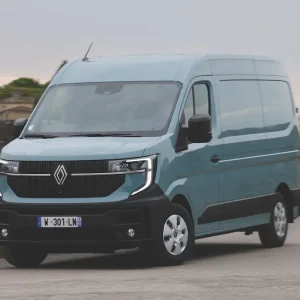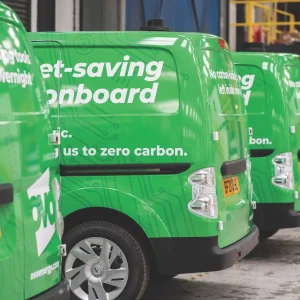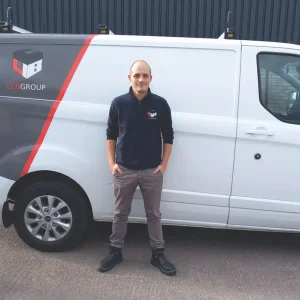Yet again temperature-controlled van conversion specialist CoolKit has driven off with our Converter of the Year award; and it’s not hard to see why.
The many and varied initiatives from a business that has become a leading player in this sector of the market include CoolSelecta.
An exceptional online configurator, it allows customers to draw up and visualise the specifications of their proposed conversion in 3D. It also enables CoolKit to deliver a bespoke quotation quickly.
Then there is the work the company has done to meet Home Office requirements governing the transportation of controlled drugs under temperature-controlled conditions. It includes an intelligent vehicle door locking system that minimises the risk of theft and eliminates the need for additional secure cabinetry.
CoolKit has developed a patented air distribution system that delivers multiple streams of air to effectively cool or heat a vehicle’s load space rapidly and uniformly. Having passed the most stringent of climate chamber tests, it has proved popular with wholesale businesses operating vans that deliver pharmaceuticals.
The company is, of course, busy developing conversions based on electric vans. Conscious that they tend to be heavier than their conventionally-powered stablemates, it is working
hard to reduce their unladen weight while simultaneously maximising their load volume and minimising their energy consumption.
It carries out continual research into the use of alternative materials and cooling methods in a bid to reduce environmental impact.
The biggest test of any firm is how it copes with adversity. Earlier this year, CoolKit passed one of the most demanding tests any operation can face with flying colours. On 6 July it was hit by a disastrous fire that destroyed its main factory. Mercifully no employees were injured, and its management team implemented a robust recovery plan that restored productivity within weeks.
It secured a new 75,000ft2 site with increased capacity, storage and accessibility and has invested heavily in the most up-to-date equipment.
At the time of writing, it is poised to double its output to over 40 vehicles a week and increase box-bodied vehicle production to 15 a week by the end of 2024. As well as turning out van conversions, it builds refrigerated boxes on chassis.
Despite the fire, it expects total sales to hit £22.3m this year, up from £20.1m in 2022; itself a record.
Converters can make whatever claims they please; but at the end of the day it is what customers have to say that really counts.
CoolKit has been working with Lola’s Cupcakes since 2018. Earlier this year, it produced a highly-unusual refrigerated vehicle based on an electric Maxus eDeliver 3 for the London-based business with transparent viewing panels on each side and at the rear.
The idea is to showcase the cupcakes that the eDeliver 3 delivers as it travels across the capital and beyond. The challenge was to ensure that the presence of the panels did not reduce the body’s ability to keep the cupcakes at the required temperature – a challenge that CoolKit met.
The design has proved to be so successful that cupcakes are now being sold directly from the vehicle.
As Lola’s Cupcakes managing director Asher Budwig says: “When you work with CoolKit, you work with the same people over a prolonged period, so you get to know each other well.
“You aren’t dealing with an enormous company,” he continues. “There is always a voice you know at the end of the phone line.
“I’m very happy with the product CoolKit has provided. We’ve never had any issues.”
Highly Commended: JC Payne
West Midlands body builder JC Payne never stops innovating. Recent projects include developing a bespoke box body for an electric Maxus eDeliver 3 and a WLTP (worldwide harmonised light vehicle test procedure) and WVTA (whole vehicle type approval) compliant box body and air kit for a battery-powered Maxus eDeliver 9.
The firm has also developed a Luton body for Ford’s electric E-Transit. Other projects include a low-floor traffic management vehicle based on the Volkswagen Crafter/MAN TGE and it has
come up with specialised vehicles for the London Fire Brigade, the London Ambulance Service and the Scottish Ambulance Service.
JC Payne turns out almost 1,200 vehicles annually, based on 3.5-tonners plus around 400 larger vehicles at its 130,000ft2 factory. Its range includes curtainsiders, dropsides and flat-beds as well as box bodies and Lutons.





